Death and Disenfranchisement
Anna Deavere Smith’s Notes from the Field
In Notes from the Field, the latest solo performance piece by Anna Deavere Smith, one of America’s most engaged and engaging theatre artists, startling facts about our society begin before she even appears on stage through a series of projections:
Nearly six million voting-age people can’t vote in the 2016 presidential election because of state felon disenfranchisement laws.
In Florida, Kentucky and Virginia, 20 percent of African-American voters are disenfranchised (because they were convicted of a felony).
Every seven seconds, a Latino public school student is suspended.Every eight seconds, a Latino public school student is corporally punished.
Twenty-two states can arrest students for some variation of “boisterous behavior” or “annoying conduct” in school.
Native Americans are being killed by police at a higher rate than any other group in the country.
Black children are almost four times more likely to face suspension than their white peers in public schools.
About 45 percent of men age twenty-four or younger in state and federal prisons are fathers.
2.7 million children have a parent in prison.
After this bombardment of dispiriting statistics, Anna Deavere Smith comes out on stage and offers an inspiring performance, portraying seventeen disparate characters with her usual dazzling virtuosity. These are actual people whom she interviewed, presented in a series of verbatim monologues—not just the words they said to her, but their accents, intonations, gestures, pauses, “uhs” and “ums.” She intends these monologues to help us see how those outwardly unrelated pre-show facts about prisoners, school discipline, and police killings are all connected.
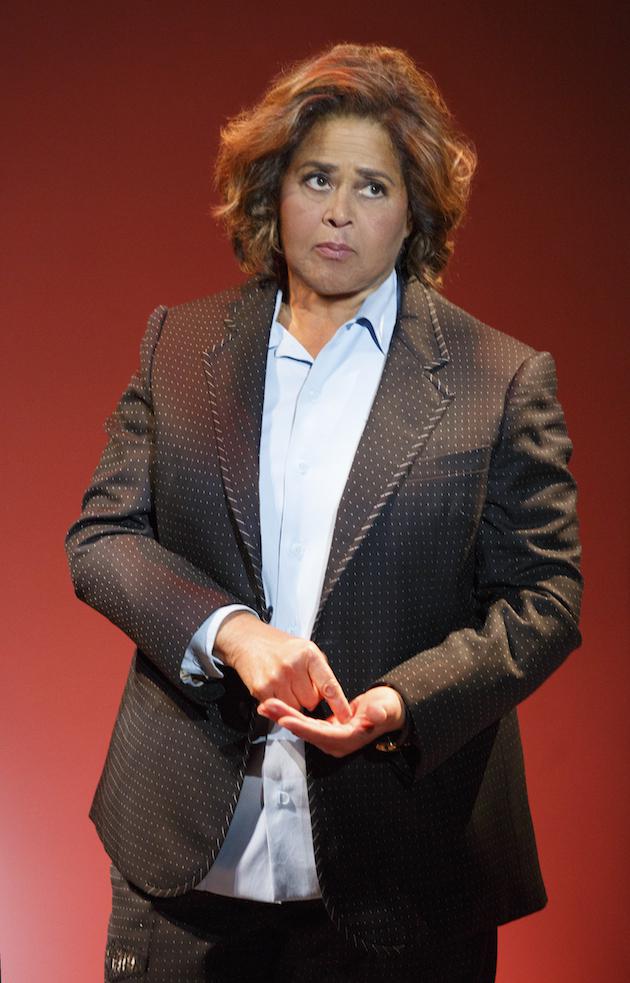
It’s been nearly a quarter century since Anna Deavere Smith more or less invented her own art form, a theatrical genre that combines activism, extensive research, a deep talent for mimicry, and a journalist’s devotion to accuracy and balance with an artist’s masterful command of stagecraft. Her first foray into this genre, the 1992 Fires in the Mirror looked at all sides in the conflict that led to the Crown Heights riots of 1991. Twilight: Los Angeles, which explored the riots after the Rodney King beating, followed two years later.
Those pieces alone were enough to win for her many accolades, including a MacArthur “genius” grant, and the respect of her peers. Todd London “reveres” her. Anne Bogart sees her as a theatrical “pioneer…telling stories in a new way,” others consider her an artist uniquely embodying “a fusion of culture and politics.”
Smith became a recognizable performer for her screen roles—the hospital administrator in Nurse Jackie, the national security adviser in The West Wing, the White House press secretary in The American President, and Tom Hanks’ paralegal friend in Philadelphia—but all the while she has continued to create solo theatre pieces. Some have focused on less inherently dramatic subjects than civil unrest— House Arrest is about life in the White House; Let Me Down Easy is about the health care system. Notes from the Field is her most diffuse and digressive work so far, less of a subject than an argument—that in the United States there is a school to prison “pipeline” for poor people and people of color.
‘Notes from the Field’ is Anna Deavere Smith’s most diffuse and digressive work so far, less of a subject than an argument—that in the United States there is a school to prison ‘pipeline’ for poor people and people of color.
Sherrilyn Ifill of the NAACP Legal Defense and Educational Fund makes the clearest case for the existence of this pipeline, and she is the character with whom Smith begins. “It is impossible to talk about the criminal justice system, mass incarceration, without talking about education,” Smith as Ifill tells us. In the past, the government made an investment in the creation of the suburbs, through mortgage insurance and the building of the interstate highway system. “Now today, we pretend we don’t make investments. Cause we talk about balancing the budget, and deficits” But in fact America has made a huge investment in the prison system—using money it could have invested in education. Ifill believes this can explain much of what’s going on in America. “There’s a lot of heaviness in this country in this moment. There’s a lot of pain.”
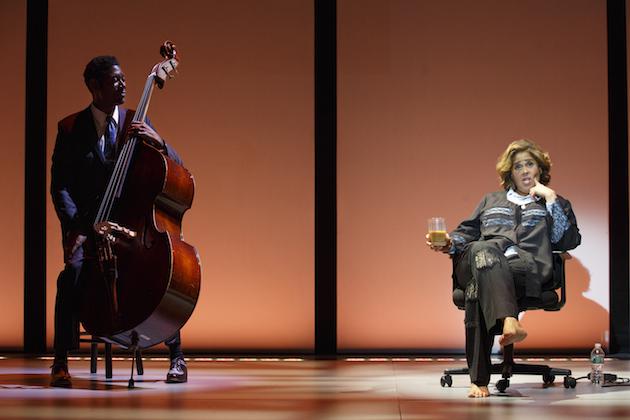
Smith helps us feel this pain through the testimony of inmates and students, parents and protesters and principals, often pairing people who talk about their personal experiences with someone—a journalist, a psychiatrist, a local politician, and so forth—who can provide perspective. So, Taos Proctor, a former prison inmate who is a member of the Yurok tribe, tells us he was always getting in trouble in school, and getting kicked out of them. His monologue is followed by that of Abby Abinanti, the chief judge of the Yurok Tribal Court, who expresses shock at the way Proctor was treated.
Nobody stopped to say, ‘Taos, what’s wrong? Why are you doing this?’…You cannot deal with children if you don’t have a sense of kindness and respect…I get mad at you, so I throw you outta school? What is that? No. I get mad at you, so we need to come closer.
Smith’s attraction to public moments—which drew her to tell the stories behind the riots in New York and Los Angeles—make their way into Notes from the Field. We see several viral videos, one of a police officer who manhandled a fourteen-year-old girl in a bathing suit, another of a school officer violently knocking a girl named Shakura out of her seat in the classroom; one of the characters in the show is Shakura’s classmate, Niya Kenny, who took the video. Near the end, we hear from Bree Newsome in great and amusing detail about her successful (if short-lived) mission to sneak up the flagpole and take down the Confederate flag from the South Carolina state house grounds after the shooting death of nine parishioners at the Emanuel African Methodist Episcopal Church in downtown Charleston. (State officials put the flag right back up, but then permanently removed it a couple of weeks later.) Smith also addresses the death of Freddie Gray at the hands of the police in Smith’s hometown of Baltimore through three characters—the man who videotaped the police encounter, a protester, and the Reverand Jamal-Harrison Bryant, who gives Gray’s eulogy.
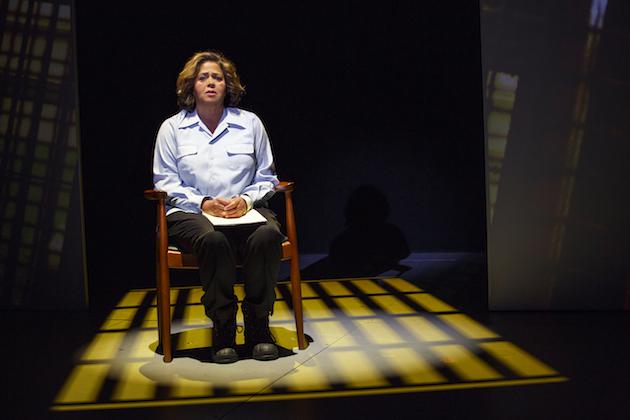
It’s admittedly a struggle to connect some of these moments—interwoven with actual videos from the events—directly to Smith’s central thesis; what does Bree Newsome’s flag adventure have to do with incarceration, or with education, or with the relationship between the two? Still, it has to do with race in America and hope for America, and besides, it’s a good story well told. Previous incarnations of Notes from the Field were subtitled “Doing Time in Education,” but for this Second Stage Theatre production that subtitle has been eliminated, perhaps an acknowledgement that the piece has broadened. It has become the first of a planned series entitled “The Anna Deavere Smith Pipeline Project.”
Recently, in discussing with a friend a show we both had seen and found disappointing, he said that in general he wasn’t finding theatregoing very satisfying "in the midst of the American Meltdown.” But perhaps he’s just attending the wrong theatre. I’ve seen two shows just since the beginning of this month that directly address what’s happening in America. (The other is Lynn Nottage’s Sweat.) At the end of Pastor Jamal-Harrison Bryant’s eulogy for Freddie Gray, he compares the dead man’s casket to the casket in a Bible story, and to the box into which young black men are trapped, “a box of stereotypes.” And he imagines that he breaks out of the box—the casket—and yells “No Justice.”
“No Peace,” replied the patrons of Second Stage Theatre.
“No Justice.”
“No Peace.”
The audience of theatergoers had turned, momentarily, into churchgoing activists.
***
Jonathan Mandell’s Newcrit piece usually appears the first Thursday of each month. See his previous pieces here.

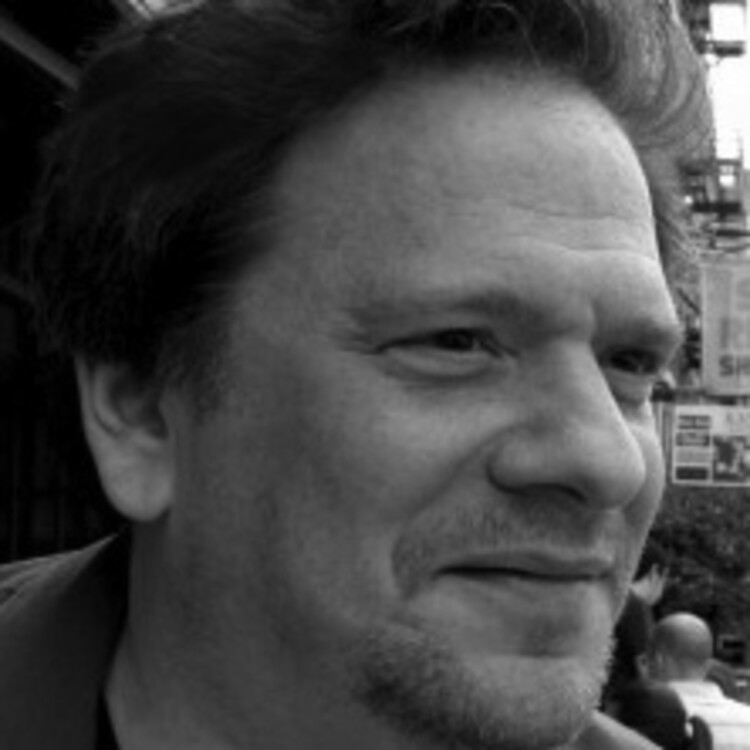
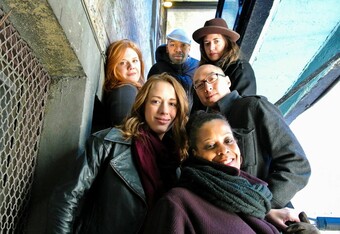



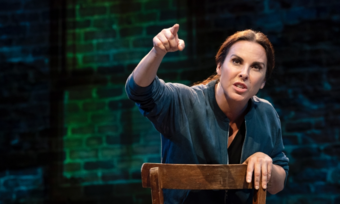

Comments
The article is just the start of the conversation—we want to know what you think about this subject, too! HowlRound is a space for knowledge-sharing, and we welcome spirited, thoughtful, and on-topic dialogue. Find our full comments policy here
1) Eurene Jarecki's documentary movie "The House I Live In" really makes the case for how the true purpose of the judicial-prison system is to provide taxpayer-funded middle-class jobs at the expense of the poor. I highly recommend it.
2) As someone who grew up poor (and has seen several loved ones die before their time), I must say that this otherwise excellent essay (and Anna Deavere Smith's works) bring to mind the old saying: "If you're poor and white, you're out of sight".)